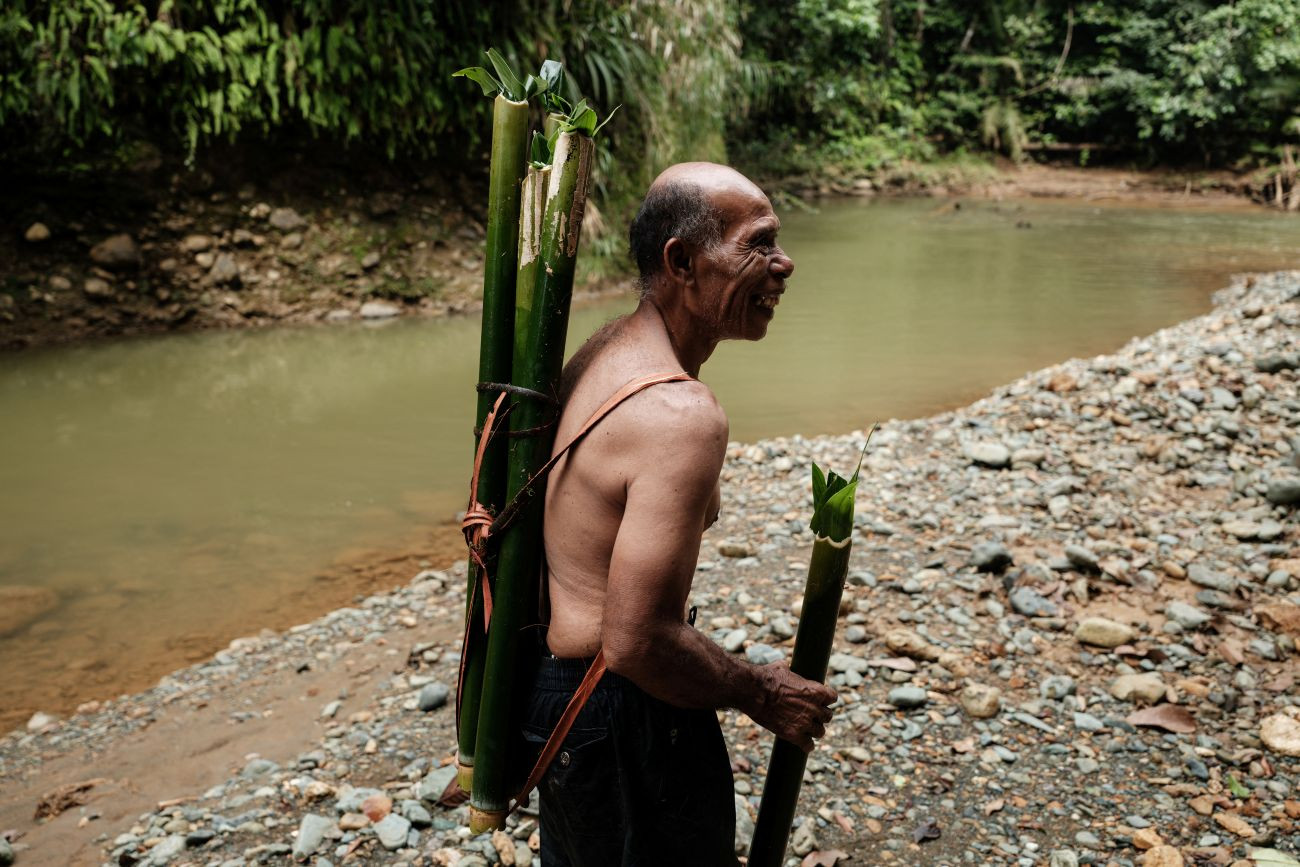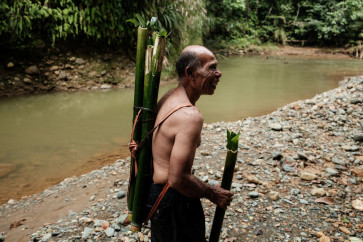Popular Reads
Top Results
Can't find what you're looking for?
View all search resultsPopular Reads
Top Results
Can't find what you're looking for?
View all search resultsCOP30 and the legitimate rights of indigenous peoples
Any climate agenda must involve indigenous peoples, who play a vital role in tacking global warning through the traditional wisdoms they have applied to managing their customary forests and lands, long before "climate change" entered the global lexicon.
Change text size
Gift Premium Articles
to Anyone
T
he 30th United Nations Climate Change Conference (COP30) in Brazil, now underway until Nov. 21, has been marked by protests from hundreds of indigenous peoples of the Amazon, who forced their way into the proceedings. COP30 must strengthen the role and protection of indigenous peoples in addressing climate change and forest conservation.
The Office of the UN High Commissioner for Human Rights emphasized that climate change had led to violations of their rights to life, adequate livelihood, food, water, housing and health. As UN Secretary-General António Guterres once stated, humanity is at stake as the impacts of climate change are extremely rapid, especially on vulnerable groups such as indigenous peoples.
Indigenous peoples play an important role in tackling climate change due to their wisdom in forest management, biodiversity conservation and combating forest and land degradation.
According to the International Labour Organization, 476 million indigenous peoples live in 90 countries worldwide, representing just 6 percent of the global population but inhabiting 22 percent of the world’s territory. Most of these territories consist of primary forests that remain intact and protected. Similarly, most indigenous peoples in Indonesia live in and depend on forest areas that serve as the lungs of the Earth, making them vital actors in combating climate change.
However, their strategic position contrasts sharply with the treatment and conditions indigenous peoples experience.
According to the Indigenous Peoples Alliance of the Archipelago (AMAN), the seizure of indigenous territories rose sharply from 2.5 million hectares reported in 2023 to 2.8 million hectares in 2024. These acts of forfeiture were accompanied by criminalization and violence, including against indigenous women and elders. The land grabs occurred for forestry, mining and plantation concessions, as well as for national strategic projects and climate-related initiatives.
The National Commission on Human Rights (Komnas HAM) also recorded similar conditions, revealing the dire state of protection for indigenous peoples, which remains minimal. Between 2020 and 2024, Komnas HAM received 2,780 complaints related to agrarian conflicts, many involving indigenous communities.



















